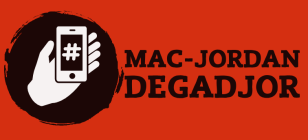Dowuona and Simons examine Ghana’s shared 4G/5G DPI rollout via a public-private partnership despite resistance from the Ghanaian public to a public-private partnership with NGIC.
In a recent article by Samuel Dowuona on TechFocus24, the focus was on Ghana’s decision to implement a shared 4G/5G digital public infrastructure (DPI) through a public-private partnership special purposes vehicle (SPV). This decision has sparked considerable debate despite the consensus among industry players about the need for shared infrastructure to drive the growth of the entire ecosystem.
The government’s policy aims to ensure the growth of the industry and the accelerated spread of 4G/5G connectivity for all. However, this policy has been met with resistance, often from interested parties who employ underhand tactics to try and twist arms in their favour.
The SPV, known as the NextGen Infrastructure Company (NGIC), was constituted just one week before it got presidential approval. Despite this, the entities that constitute the SPV have decades of rich experience in their respective fields.
The license for this shared 4G/5G DPI was awarded to NextGen Infrastructure Company (NGIC) for a paltry US$6.25 million. The alternative would have been to auction the license for individual entities, including telcos, to acquire them. However, none of the telcos in Ghana have run a 5G network before.
Bright Simons 5Fs for Ghana’s 5G Policy
In the article “5Fs for Ghana’s 5G Policy” by Bright Simons, the author critically evaluates Ghana’s recently announced 5G policy. The author uses five words, all beginning with the letter ‘F’, to grade the policy: Fumble, Falter, Flounder, Flop, and Fail.
The policy is premised on bringing in a consortium to build the 5G network to avoid the issues that arose with the earlier generations of telecom infrastructure in Ghana (from 1G to 4G). The author argues that the government’s previous policies led to a monopoly, namely MTN, which undercut rivals and suppressed competition.
However, the author points out that according to ITU rankings and assessments, Ghana’s digital performance is higher than that of many other African countries. For example, Ghana ranked third behind Nigeria and Malawi in Africa for the cheapest mobile internet (data) prices.
The author concludes by expressing a desire for a constructive debate to improve the policy and enhance the welfare of telecom consumers in Ghana.
Several key issues that need to be addressed:
- Security Concerns: The type of 5G kit to be used is a significant concern, especially given the global security issues associated with certain manufacturers.
- Quality of Service: It’s unclear who the National Communications Authority (NCA) would hold accountable for any quality of service issues – whether it would be the NextGen Infrastructure Company (NGIC) or the individual service providers.
- Spectrum Price: The spectrum price given to the licensee is not US$6.25 million but over $100 million, payable in small instalments over the next ten years.
- Share Distribution: The government holds a 7.5% share in NGIC, while the three telcos have been offered a total of 25%. The remaining 67.5% is held by the five other partners, who are the main financiers of the project.
- Spectrum Allocation: NGIC has been allocated 200MHz in the 3.5MHz spectrum band for 5G, 40MHz in the 2.6MHz band for 4G, and 2x10MHz in the 2.1MHz band, also for 4G. This is for a 10-year licensing period before renewal on May 4, 2034.
- Private Partners: The private partners in the consortium include Nokia (Finland), Tech Mahindra (India), Radisys (India), K-NET (Ghana), Ascend Digital (Ghana), AT Ghana, Telecel Ghana, and soon MTN Ghana will join.
These concerns and facts highlight the complexity of implementing a shared 4G/5G infrastructure. It’s crucial that these issues are addressed transparently and effectively to ensure the success of this initiative.
Fair Competition Among Ghana Telcos
Ensuring fair competition among telecommunications companies in a consortium like the NextGen Infrastructure Company (NGIC) in Ghana requires a multi-faceted approach:
- Regulatory Oversight: The National Communications Authority (NCA) or a similar regulatory body should have strong oversight to ensure all members of the consortium adhere to fair competition practices. This includes monitoring pricing, service quality, and access to shared resources.
- Transparent Processes: Decisions regarding the consortium, such as allocation of resources, pricing, and policies, should be made transparently. All members should have a say in these decisions to prevent any single entity from having undue influence.
- Fair Access to Shared Resources: The shared 4G/5G digital public infrastructure should be accessible to all members of the consortium on equal terms. This includes access to spectrum, network equipment, and other shared resources.
- Dispute Resolution Mechanisms: There should be clear and fair mechanisms for resolving disputes among members of the consortium. This can help prevent conflicts that could disrupt services or create an unfair competitive environment.
- Periodic Review and Adjustments: The policies and practices of the consortium should be reviewed periodically to ensure they continue to promote fair competition. Adjustments should be made as necessary based on these reviews.
By implementing these measures, Ghana can help ensure that the shared 4G/5G infrastructure benefits all telecommunications companies in the consortium, promotes competition, and ultimately benefits consumers with better services and prices.
In conclusion, the government’s decision to implement a shared 4G/5G DPI through a public-private partnership SPV has been met with resistance. However, the entities that constitute the SPV, NGIC, have decades of experience in their respective fields, and the license was awarded to them for a paltry US$6.25 million.










